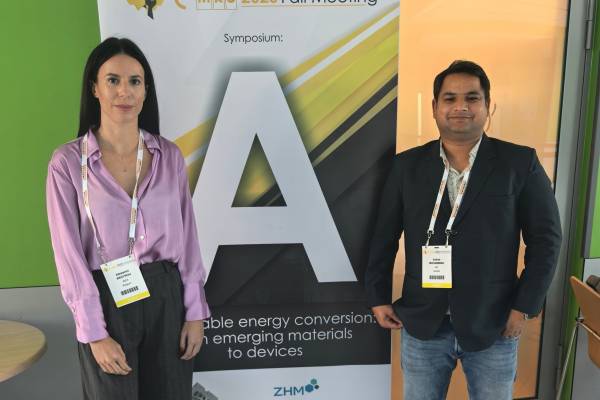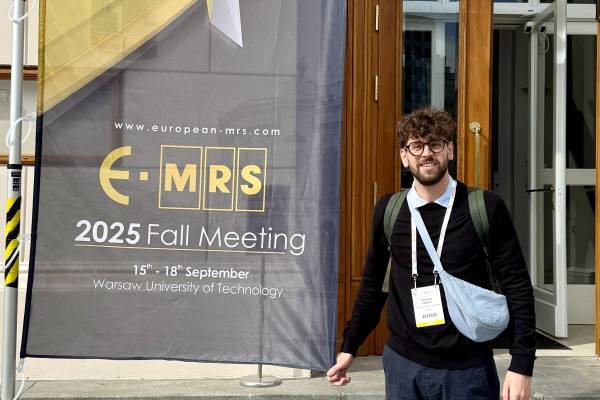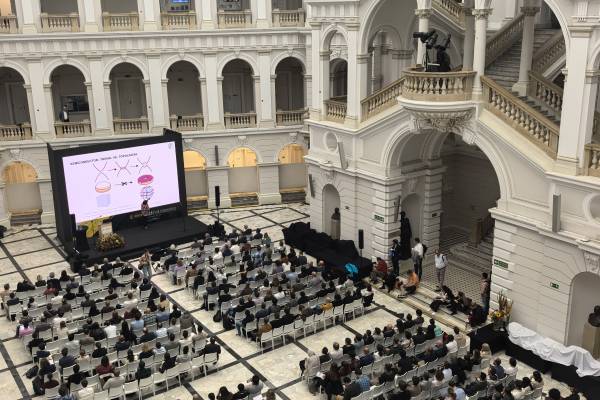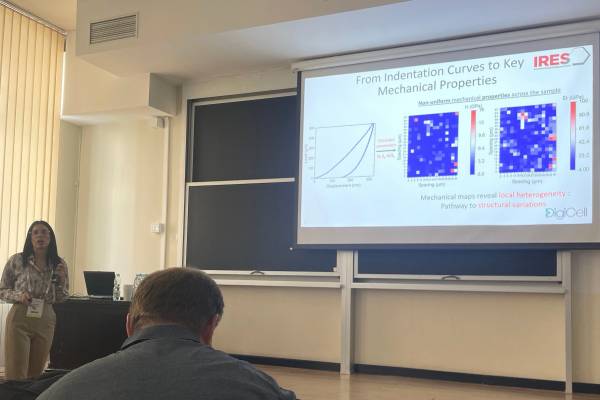DigiCell with full power at EMRS 2025
The European Materials Research Society’s Fall Meeting (E-MRS 2025) took place on 15–18 September 2025 in Warsaw, Poland. The high-quality scientific program featured 23 symposia arranged in 4 clusters, covering topics such as Materials for Energy, Characterization and Artificial Intelligence, Thin Films and Composite Materials, as well as Emerging Electronic, Photonic and Quantum Materials.
This vast variety of subjects offered ample opportunity for DigiCell to get involved.
Presentation by Katerina Argyrou from IRES on “Advanced Characterisation in Battery Domain: Decoding LNMO Cathodes through Integration of Nanomechanics, Imaging and AI” With this talk, IRES contributed to Symposium H: “Reliable characterisation of functional nanomaterials and of materials for energy storage or conversion” presenting the latest results regarding LNMO cathodes. Their work demonstrated how nanoindentation combined with machine learning clustering can capture variations in the local mechanical response of LNMO particles. Together with automated SEM analysis tool, the team showed how reliable particle-level descriptors can be extracted, highlighting the intrinsic heterogeneity of LNMO particles.
Presentation by Irshad Mohammad from AIT on “Pilot Line Characterization and Process Optimization for Magnesium-Based Battery Prototypes” In this work, AIT developed a next-generation magnesium (Mg) battery and demonstrated its performance at the pouch cell level. A new Mg powder-based anode outperformed traditional Mg foil, offering lower cost, easier scalability, and a reduced N/P ratio. This advancement brings Mg batteries closer to practical, large-scale applications.
Invited talk by Francisco Fernandez from Université de Picardie Jules Verne on “Accelerated Optimization of Battery Manufacturing by combining Computational Simulations & AI” Here, Francisco presented the latest research progress in developing digital solutions for the inverse design of rechargeable battery manufacturing processes, as carried out in the group of Alejandro A. Franco at UPJV/CNRS. These solutions encompass physics-based mesoscale models of various key steps in the manufacturing process, and the generated datasets are used to train machine learning models to reveal the interdependencies between manufacturing parameters and properties.




